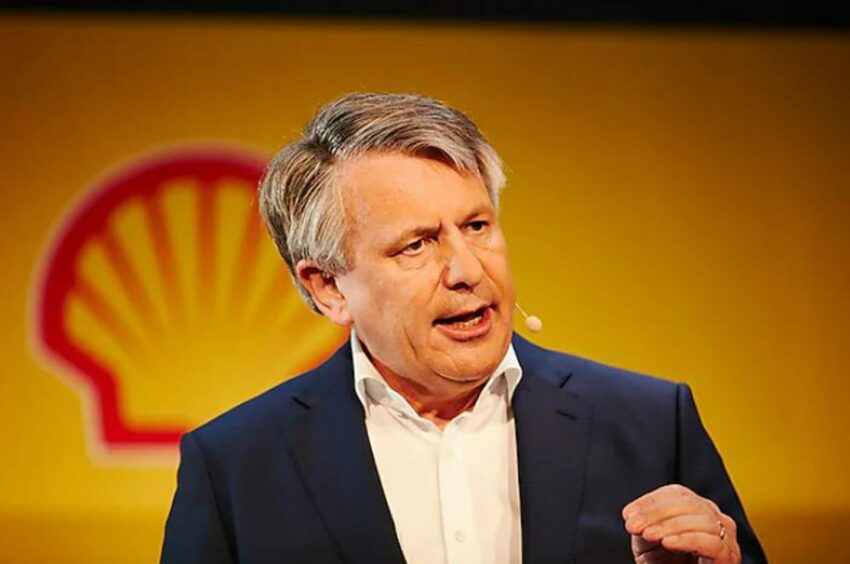
Shell intends to grow its share of UK oil and gas supplies and invest £100m in skills to support 15,000 energy transition jobs by 2030 as part of its £25 billion investment plans.
Speaking at a Powering Progress event at a hotel in East London, chief executive Ben van Beurden said the company was making an “acceleration” of its UK plans.
“We are going to go faster. I believe this is necessary at this time of great uncertainty and change,” he told an audience of employees at the venue and watching remotely.
Looking to the north east specifically, he said the company’s Aberdeen energy hub “will be the basis of our upstream organisation” and will house “pioneers with decades long track-records in oil and gas who have built our UK energy business.”
Mr van Beurden said the “expertise and experience” in the region would help support the “huge task” of continuing to supply oil and gas, while making carbon capture and storage (CCS), hydrogen and offshore floating wind a reality.
He said the combination of investments in these technologies – and at the Acorn project in particular – could help make the St Fergus gas terminal “the heart of Scottish CCS and hydrogen”.
£25bn by 2030
The supermajor has already outlined plans to invest between £20-25 billion in the UK energy system by the end of the decade, more than three-quarters of which would be directed towards low and zero-carbon products and services, including offshore wind, hydrogen and electric mobility.
This low-carbon investment figure formed one of five UK “ambitions” for the company to achieve by 2030, Mr van Beurden said.
Another was to grow the company’s share of UK oil and gas supply, from 10% today to “about 15%” by 2030. It reiterated that it would do so while halving its operational emissions in the same time frame, compared with 2018.
A new target was also announced for the company to invest £100m by 2030 to help 15,000 people get “skilled jobs”. Funding will be allocated to skills development programmes aimed at energy transition roles, such as training electricians to install EV chargers.
A Shell spokesperson said the programmes would be aimed at those in their early or mid-careers.
A further two goals would see the group install more than 100,000 public EV charging points by the same date, and grow its retail arm to supply five million customers, from 1.4 million today.
‘Stable fiscal policy’
Business Secretary Kwasi Kwarteng also spoke during the London event, welcoming the company’s investment plans two weeks after the government announced a windfall tax on the industry.
In a clear nod to the controversial policy, Mr van Beurden’s speech also noted that “investments in projects like these require a stable fiscal policy… and we continue to look to the government for those assurances.”
“When planning for the next decade and beyond in the UK, for example, businesses need to be able to rely on stable fiscal policies that incentivise investment in both North Sea oil and gas and a renewable energy system,” he added.
The company has previously warned that measures enacted under the Energy Profits Levy create “uncertainty” about the fiscal environment in the North Sea.
Mr van Beurden also hinted at a wider shift in strategy, saying that Shell intends to be a “pacesetter” for energy transition, but that the company’s “current operating plans will have to change” if it is to achieve its goal of net zero emissions by 2050.
However, he warned that it would not be able to do so alone. “If society does not achieve net-zero emissions in 2050, there would be significant risk that Shell may not meet this target,” he said.
Recommended for you
